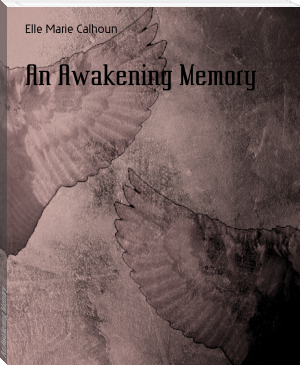Apocalypse - Ellen G. White (good book club books txt) 📗

- Author: Ellen G. White
Book online «Apocalypse - Ellen G. White (good book club books txt) 📗». Author Ellen G. White
The movement was chiefly among the lower class, and it was in the humble dwellings of the labourers that the people assembled to hear the warning. The child-preachers themselves were mostly poor cottagers. Some of them were not more than six or eight years of age; and while their lives testified that they loved the Saviour, and were trying to live in obedience to God's holy requirements, they ordinarily manifested only the intelligence and ability usually seen in children of that age. When standing before the people, however, it was evident that they were moved by an influence beyond their own natural gifts. Tone and manner changed, and with solemn power they gave the warning of the judgment, employing the very words of Scripture: "Fear God, and give glory to Him; for the hour of His judgment is come." They reproved the sins of the people, not only condemning immorality and vice, but rebuking worldliness and backsliding, and warning their hearers to make haste to flee from the wrath to come.
The people heard with trembling. The convicting Spirit of God spoke to their hearts. Many were led to search the Scriptures with new and deeper interest, the intemperate and immoral were reformed, others abandoned their dishonest practices, and a work was done so marked that even ministers of the state church were forced to acknowledge that the hand of God was in the movement. It was God's will that the tidings of the Saviour's coming should be given in the Scandinavian countries; and when the voices of His servants were silenced, He put His Spirit upon the children, that the work might be accomplished.
When Jesus drew near to Jerusalem attended by the rejoicing multitudes that, with shouts of triumph and the waving of palm branches, heralded Him as the Son of David, the jealous Pharisees called upon Him to silence them; but Jesus answered that all this was in fulfillment of prophecy, and if these should hold their peace, the very stones would cry out. The people, intimidated by the threats of the priests and rulers, ceased their joyful proclamation as they entered the gates of Jerusalem; but the children in the temple courts afterward took up the refrain, and, waving their branches of palm, they cried: "Hosanna to the Son of David!" Matthew 21:8-16. When the Pharisees, sorely displeased, said unto Him, "Hearest Thou what these say?" Jesus answered, "Yea; have ye never read, Out of the mouth of babes and sucklings Thou hast perfected praise?" As God wrought through children at the time of Christ's first advent, so He wrought through them in giving the message of His second advent. God's word must be fulfilled, that the proclamation of the Saviour's coming should be given to all peoples, tongues, and nations.
To William Miller and his colabourers it was given to preach the warning in America. This country became the centre of the great advent movement. It was here that the prophecy of the first angel's message had its most direct fulfillment. The writings of Miller and his associates were carried to distant lands. Wherever missionaries had penetrated in all the world, were sent the glad tidings of Christ's speedy return. Far and wide spread the message of the everlasting gospel: "Fear God, and give glory to Him; for the hour of His judgment is come."
The testimony of the prophecies which seemed to point to the coming of Christ in the spring of 1844 took deep hold of the minds of the people. As the message went from state to state, there was everywhere awakened widespread interest. Many were convinced that the arguments from the prophetic periods were correct, and, sacrificing their pride of opinion, they joyfully received the truth. Some ministers laid aside their sectarian views and feelings, left their salaries and their churches, and united in proclaiming the coming of Jesus. There were comparatively few ministers, however, who would accept this message; therefore it was largely committed to humble laymen. Farmers left their fields, mechanics their tools, traders their merchandise, professional men their positions; and yet the number of workers was small in comparison with the work to be accomplished. The condition of an ungodly church and a world lying in wickedness, burdened the souls of the true watchmen, and they willingly endured toil, privation, and suffering, that they might call men to repentance unto salvation.
Though opposed by Satan, the work went steadily forward, and the advent truth was accepted by many thousands. Everywhere the searching testimony was heard, warning sinners, both worldlings and church members, to flee from the wrath to come. Like John the Baptist, the forerunner of Christ, the preachers laid the ax at the root of the tree and urged all to bring forth fruit meet for repentance. Their stirring appeals were in marked contrast to the assurances of peace and safety that were heard from popular pulpits; and wherever the message was given, it moved the people. The simple, direct testimony of the Scriptures, set home by the power of the Holy Spirit, brought a weight of conviction which few were able wholly to resist. Professors of religion were roused from their false security. They saw their backslidings, their worldliness and unbelief, their pride and selfishness.
Many sought the Lord with repentance and humiliation. The affections that had so long clung to earthly things they now fixed upon heaven. The Spirit of God rested upon them, and with hearts softened and subdued they joined to sound the cry: "Fear God, and give glory to Him; for the hour of His judgment is come." Sinners inquired with weeping: "What must I do to be saved?" Those whose lives had been marked with dishonesty were anxious to make restitution. All who found peace in Christ longed to see others share the blessing. The hearts of parents were turned to their children, and the hearts of children to their parents. The barriers of pride and reserve were swept away. Heartfelt confessions were made, and the members of the household laboured for the salvation of those who were nearest and dearest. Often was heard the sound of earnest intercession. Everywhere were souls in deep anguish pleading with God. Many wrestled all night in prayer for the assurance that their own sins were pardoned, or for the conversion of their relatives or neighbours.
All classes flocked to the Adventist meetings. Rich and poor, high and low, were, from various causes, anxious to hear for themselves the doctrine of the second advent. The Lord held the spirit of opposition in check while His servants explained the reasons of their faith. Sometimes the instrument was feeble; but the Spirit of God gave power to His truth. The presence of holy angels was felt in these assemblies, and many were daily added to the believers. As the evidences of Christ's soon coming were repeated, vast crowds listened in breathless silence to the solemn words. Heaven and earth seemed to approach each other. The power of God was felt upon old and young and middle-aged. Men sought their homes with praises upon their lips, and the glad sound rang out upon the still night air. None who attended those meetings can ever forget those scenes of deepest interest.
The proclamation of a definite time for Christ's coming called forth great opposition from many of all classes, from the minister in the pulpit down to the most reckless, Heaven-daring sinner. The words of prophecy were fulfilled: "There shall come in the last days scoffers, walking after their own lusts, and saying, Where is the promise of His coming? for since the fathers fell asleep, all things continue as they were from the beginning of the creation." 2 Peter 3:3, 4. Many who professed to love the Saviour, declared that they had no opposition to the doctrine of the second advent; they merely objected to the definite time. But God's all-seeing eye read their hearts. They did not wish to hear of Christ's coming to judge the world in righteousness. They had been unfaithful servants, their works would not bear the inspection of the heart-searching God, and they feared to meet their Lord. Like the Jews at the time of Christ's first advent they were not prepared to welcome Jesus. They not only refused to listen to the plain arguments from the Bible, but ridiculed those who were looking for the Lord. Satan and his angels exulted, and flung the taunt in the face of Christ and holy angels that His professed people had so little love for Him that they did not desire His appearing.
"No man knoweth the day nor the hour" was the argument most often brought forward by rejecters of the advent faith. The scripture is: "Of that day and hour knoweth no man, no not the angels of heaven, but My Father only." Matthew 24:36. A clear and harmonious explanation of this text was given by those who were looking for the Lord, and the wrong use made of it by their opponents was clearly shown. The words were spoken by Christ in that memorable conversation with His disciples upon Olivet after He had for the last time departed from the temple. The disciples had asked the question: "What shall be the sign of Thy coming, and of the end of the world?" Jesus gave them signs, and said: "When ye shall see all these things, know that it is near, even at the doors." Verses 3, 33.
One saying of the Saviour must not be made to destroy another. Though no man knoweth the day nor the hour of His coming, we are instructed and required to know when it is near. We are further taught that to disregard His warning, and refuse or neglect to know when His advent is near, will be as fatal for us as it was for those who lived in the days of Noah not to know when the flood was coming. And the parable in the same chapter, contrasting the faithful and the unfaithful servant, and giving the doom of him who said in his heart, "My Lord delayeth His coming," shows in what light Christ will regard and reward those whom He finds watching, and teaching His coming, and those denying it. "Watch therefore," He says. "Blessed is that servant, whom his Lord when He cometh shall find so doing." Verses 42, 46. "If therefore thou shalt not watch, I will come on thee as a thief, and thou shalt not know what hour I will come upon thee." Revelation 3:3.
Paul speaks of a class to whom the Lord's appearing will come unawares. "The day of the Lord so cometh as a thief in the night. For when they shall say, Peace and safety; then sudden destruction cometh upon them, . . . and they shall not escape." But he adds, to those who have given heed to the Saviour's warning: "Ye, brethren, are not in darkness, that that day should overtake you as a thief. Ye are all the children of light, and the children of the day: we are not of the night, nor of darkness." 1 Thessalonians 5:2-5.
Thus it was shown that Scripture gives no warrant for men to remain in ignorance concerning the nearness of Christ's coming. But those who desired only an excuse to reject the truth closed their ears to this explanation, and the words "No man knoweth the day nor the hour" continued to be echoed by the bold scoffer and even by the professed minister of Christ. As the people were roused, and began to inquire the way of salvation, religious teachers stepped in between them and the truth, seeking to quiet their fears by falsely interpreting the word of God. Unfaithful watchmen united in the work of the great deceiver, crying, Peace, peace, when God had not spoken peace. Like the Pharisees in Christ's day, many refused to enter the kingdom of heaven themselves, and those who were entering in they hindered. The blood of these souls will be required at their hand.
The most humble and devoted in the churches were usually the first to receive the message. Those who studied the Bible for themselves could not but see the unscriptural character of the popular views of prophecy; and wherever the people were not controlled by the influence of the clergy, wherever they would search the word of God for themselves, the advent doctrine needed only to be compared with the Scriptures to establish its divine authority. Many were persecuted by their unbelieving brethren. In order to retain their position in the church, some consented to be silent in regard to their hope; but others felt that loyalty to God forbade them thus





Comments (0)